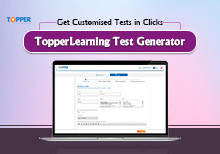Three Steps to Become a Chartered Accountant

Let’s see what the CA course structure looks like.
By 02nd Aug, 2016 | 04:58 pm
ShareFrom the manufacturing sector to the services sector, companies not only have to run a profitable enterprise but also have to deal with finance and tax matters. So, they make sure to employ qualified and dedicated chartered accountants or CAs to deal with auditing and taxation in an efficient manner. These individuals are heroes in their own right simply because they are instrumental in guiding a company to success. You must’ve heard family members talk about them with great respect or close uncles recommending their favourite CA to your father. So, who is this mysterious person?

Image source: www.accountsresource.co.uk
A CA is an individual who manages and handles the accounts and finances of individuals or organisations. CAs may have to boldly venture into areas of auditing, investments, budgeting, financial planning, banking and risk management, but they are simply credited with either their passion for or their excellence in chartered accountancy.
Chartered accountancy is a financially rewarding and challenging career. However, regular colleges do not offer a chartered accountancy course. ICAI—Institute of Chartered Accountants of India—is a regulatory body which maintains the quality of chartered accountancy education in India. If you plan to become a CA, then you have to get yourself registered with ICAI.
Who can register and the eligibility criteria
Students who have passed the higher secondary school certificate examination (10+2) from any stream (Science/Commerce/Arts) are eligible to pursue the CA course. Graduates or postgraduates with a Bachelor’s degree from a reputed institute can also apply for the course.
Students from the Commerce stream are usually relatively comfortable with the CA course. This is because the course consists of subjects such as Accounting and Finance, the concepts of which they are already familiar with while studying in Class 11 and 12.
But perhaps you’re not from the Commerce stream. Fret not. Let’s see what the CA course structure looks like.
CA Course Structure
1. Common Proficiency Test (CPT)
2. Integrated Professional Competence Course (IPCC)
3. CA Final Course
A candidate is said to have finished the CA course only on completing these three stages.
Common Proficiency Test
CPT is an entry-level test which is designed in a pattern similar to the entry-level tests for engineering, medical and other professional courses. It is a test of 4 hours duration comprising two sessions of two hours each, with a break between the two sessions. The test comprises objective type questions with negative marking for choosing a wrong option. The CPT syllabus includes
- Fundamentals of Accounting
- Mercantile Laws
- General Economics
- Quantitative Aptitude
Candidates who have passed the intermediate-level examination conducted by the Institute of Cost Accountants of India or the Institute of Company Secretaries of India are exempted from taking the common proficiency test. Such students can directly register for the Integrated Professional Competence Course.
Integrated Professional Competence Course
This is the first stage of theoretical education in the CA course. This level focuses on theoretical knowledge in accounting and related subjects. The IPCC syllabus includes
- Accounting
- Business Laws, Ethics and Communication
- Cost Accounting and Financial Management
- Taxation
- Advanced Accounting
- Auditing and Assurance
- Information Technology and Strategic Management
While going through IPCC, a candidate has to complete 35 hours of work orientation and 100 hours of information technology training, which involves building skills in using MS Office, ICAI CA software and accounting packages and understanding E-filing and web technology.
The theoretical course is followed by a three-year long training session at an auditing or accountancy firm. This practical training is known as ‘articleship’. During practical training, a candidate also has to complete two courses on General Management and Communication Skills. After qualifying in both groups of IPCC and completing the training programme, a candidate can join the CA final course.
CA Final Course
The last leg of the chartered accountancy course is the CA Final Course. It’s designed to impart expert knowledge in financial reporting, auditing and professional ethics, taxation, corporate laws, system control, strategic finance and advanced management accountancy. In this stage, practical knowledge is given much importance. The CA Final Course syllabus includes
- Financial Reporting
- Strategic Financial Management
- Advanced Auditing and Professional Ethics
- Corporate and Allied Laws
- Advanced Management Accounting
- Information Systems Control and Audit
- Direct Tax Laws
- Indirect Tax Laws
After passing the final examination, you can acquire an ICAI membership. You can also proudly prefix your name with ‘CA’ after acquiring membership!
Further Studies and Courses
After the CA course, you may pursue advanced courses or specialise in disciplines such as finance management and taxation. Some well-known advanced courses and disciplines are
- CFA (Chartered Financial Analyst)
- FRM (Financial Risk Manager)
- CFP (Certified Financial Planner)
- CS (Company Secretary)
- CWA (Cost and Work Accountants)
- MBA (Finance)
- Actuarial Sciences
- Law
Career Prospects and Job Opportunities
Numerous job opportunities await a talented CA. Both public and private sectors offer diverse job opportunities and profiles. Tax-related matters, finance management and auditing are a vital few. CAs find jobs in
- Banking and Insurance (Government and Private)
- Income Tax Department
- Tax Advisory Firms
- Auditing Firms
- Stock Broking Firms
- Investment Banking Firms
- Asset Management Firms
- Law Firms (LL.B. degree is an added advantage)
- Finance Companies
- CA Firms
- Corporate Houses (Planning and Budgeting)
Some well-known independent job profiles include
- Auditor (Statutory, Internal, Tax)
- Cost Accountant
- Tax Specialist (Direct and indirect taxes)
- Investment Banker
- Asset Manager
- Manager (Accounts, Finance, Credit)
- Consultant
More from Education
Important Resources
- Education Franchisee opportunity
- NCERT Solution
- CBSE Class 9 Mathematics
- NCERT Solutions for class 10 Science
- Sample Papers
- CBSE Class 9 Science
- NCERT Solutions for class 10 Maths
- Revision Notes
- CBSE Class 10 Hindi
- CBSE Class 10 English
- CBSE Class 10 English
- CBSE Class 10 Social Studies
- CBSE Class 10 Science
- CBSE Class 10 Mathematics
- Career In Science After 10
- Career In Commerce After 10
- Career In Humanities/Arts After 10
- NCERT Solutions for Class 10
- NCERT Solutions for Class 11
- Business Studies Class 12 CBSE project





